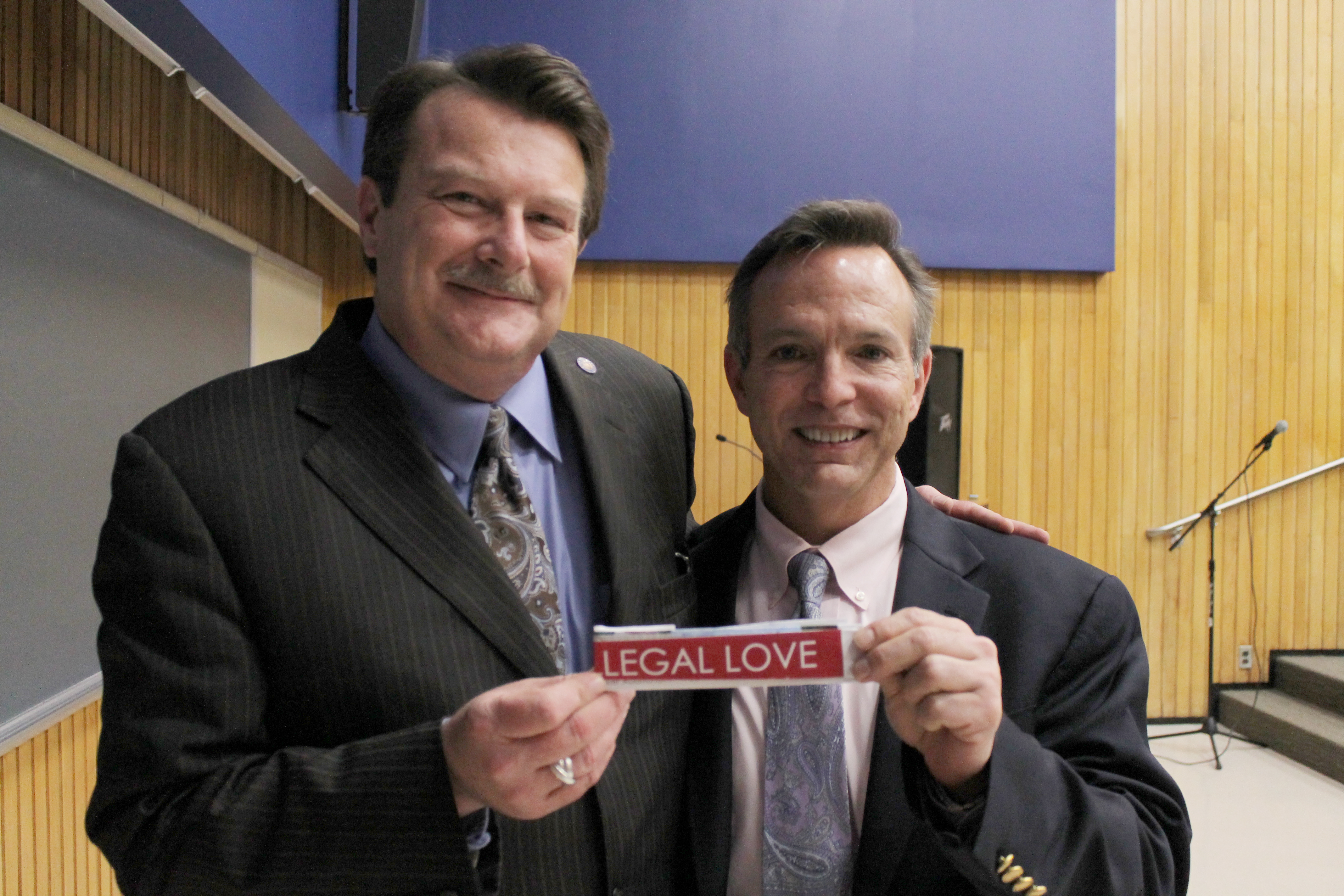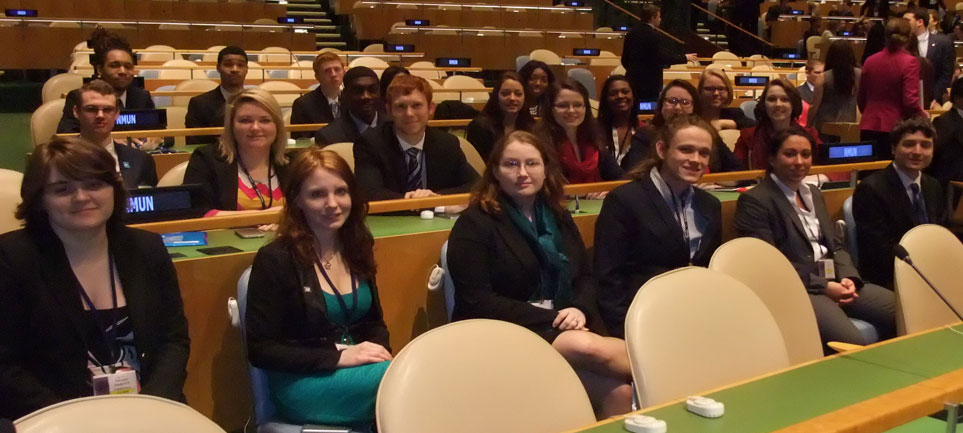Anthony Dellamura | Marlin Chronicle
By Jessica Mackey
Last month, Tim Bostic and his husband, Tony London, visited Virginia Wesleyan College, giving a lecture titled, “Illegal Love: Tim Bostic on Politics, Religion and Marriage Equality.” Bostic was very candid about his and his partner’s decision to sue the commonwealth of Virginia. He also revealed intimate details of his life, spanning his love for London, his appreciation of his father’s love, and his strong belief in faith and the faith community, leaving all those who attended with a renewed understanding of marriage equality and the overall discussion of marriage in America.
Marriage equality has taken our country by storm, with more than 32 states granting citizens the right to marry someone of the same sex. In Virginia, the fight for marriage equality gained intensity not long ago when Bostic and London sought to obtain a marriage license at the Norfolk Circuit Court in July 2013. However, due to a 2006 law banning same-sex marriages in Virginia, their request was denied.
“The couple filed a lawsuit in the U.S. District Court, and on Feb. 13, 2014, the court ruled in their favor,” said Kathleen Casey, assistant professor of history at Virginia Wesleyan College. “In a strongly worded ruling, Judge Arenda Wright Allen argued that laws prohibiting gay and lesbian couples from marrying are unconstitutional. She further declared that marriage is a fundamental right of all people. The New York Times called her ruling, ‘the strongest legal reversal yet of restrictive marriage amendments that exist throughout the South.’”
However, the case did not end there.
“The U.S. Court of Appeals for the Fourth Circuit upheld Judge Wright’s decision in a ruling handed down in July, but as you probably recall, shortly thereafter, the Supreme Court granted an emergency request to stay the mandate,” Casey said. “After the Supreme Court let stand the Fourth Circuit Court’s ruling, on Oct. 6, 2014, Bostic and London were able to obtain their marriage license.
Although the courts have ruled marriage equality a reality, many remain opposed to same-sex marriage.
“We tend to think of marriage as an unchanging, private affair between two individuals,” Casey said. “But for as long as we have been a nation, marriage has played a fundamental role in shaping the contours of our relationships, our households, our communities, our states and our nation…But marriage has not remained the same over time. Who could get married, at what age, who could officiate a marriage, what rights married people possessed and under what circumstances a marriage could be terminated have all undergone dramatic revision over time.”
Marriage provides couples certain legal and civic liberties and privileges that single people are denied.
“The idea of marriage as a civil act purports legal responsibilities and privileges upon two people and civil rights upon two people,” Bostic said. “These are civic realities, so it’s really important that people understand that there are civil realities. For two people not to marry, the things that couples do as couples are jeopardized.”
This fact was one reason that Bostic and London decided to sue the commonwealth of Virginia. But the most important one was their desire to stand up in their church and pledge their love for each other.
Although the courts have ruled marriage equality a reality, many remain opposed to same-sex marriage.
“Are there people mad about it? Yes,” Bostic said. “Are there people sick of talking about it? Yes…and I really do think there are always going to be people that oppose and stir people up with fear, hate and negativity because they will never win.”
Bostic commented on the ability to reverse the negative perceptions present in society.
“Familiarity always removes fear,” Bostic said. “Because most prejudice is fear based and once you learn that there is nothing to be afraid of and that Tony’s and I love for each other in no way diminishes your love for each other.”
Bostic acknowledged the sameness between people which he and others recognize, regardless of sexual orientation.
“We understand people’s opposition to us. It’s different. And what’s different often makes us feel uncomfortable,” Bostic said. “Giving rights that you have to someone else needs you to acknowledge their sameness, and thus less special….I’m an idealist and an optimist. And I truly believe love conquers all and I understand how that sounds so trite. I wear my heart on my sleeve…I’m a positive person. I think that the fact that we won shows that love does conquer all. And I think it says to a lot of people, as many straight people told us, that this ruling made their marriage stronger. It’s interesting because it shows that our country dignifies this coupling of two people, as this very important God-given right.”




